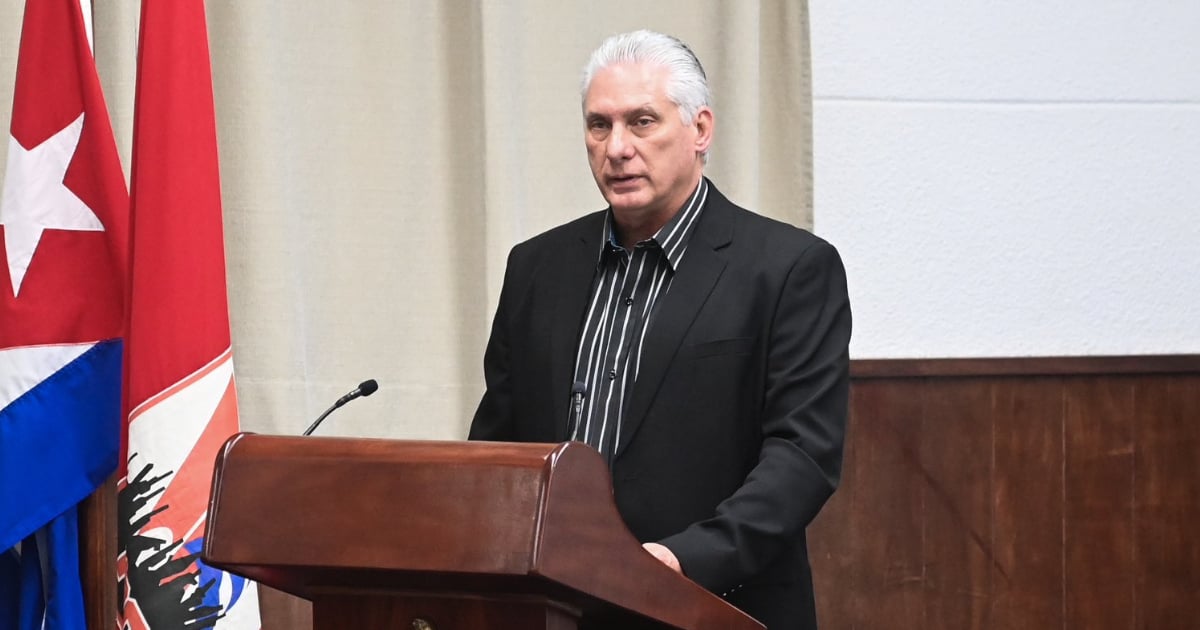In a recent address, Cuban leader Miguel Díaz-Canel acknowledged that 2024 has been an exceptionally challenging year, stating that "we are practically living day to day." Despite these admissions, he reverted to his overused rhetoric of addressing issues through "creative resistance."
During the closing of the IX Plenum of the Central Committee of the Communist Party, Díaz-Canel expressed optimism about overcoming the current crisis. However, instead of offering concrete solutions, he reiterated familiar concepts such as creativity, talent, innovation, and hard work. "The moment is very complex, but not insurmountable," he emphasized.
According to Díaz-Canel, the solution to Cuba's problems lies in resistance—not as a synonym for enduring hardship, but through rebellion, strength, energy, and vitality. This positive outlook starkly contrasts with the ongoing suffering of the Cuban people, who are witnessing the steady decline of their living conditions amidst widespread shortages.
He remarked, "Complaining and opting for sacrifice are not in the Cuban genes. Cuba has reached this point by fighting and creating, turning setbacks into victories." Ignoring the widespread public discontent with political leadership, Díaz-Canel urged the Party to mobilize efforts to produce tangible results that could improve living conditions and enhance wages and pensions.
Addressing the persistent power outages, Díaz-Canel failed to offer any solutions, even in the long term. Instead, he praised the solidarity among neighbors, who share food, store perishables in each other's refrigerators, and help charge mobile phones for those with generators. "In these tough times, we've witnessed the strength of our inherent values, which grow stronger in adversity," he noted, before asserting that the nation will persevere: "Nobody gives up here!"
He acknowledged the numerous complaints from the public regarding essential goods shortages, the liquefied gas crisis, and the lack of medications—issues that have worsened during his tenure. "We live under significant pressure managing each of these issues. It's important to explain this so that people understand we're not just sitting idly by," he stated, deflecting blame from the internal responsibilities of his regime while failing to outline any steps being taken to address these challenges.
In a context plagued by currency devaluation, rising prices, and scarcity of basic products, Díaz-Canel continues to champion Marxism. He remains confident that the Cuban people will trust socialism, seeing it as capable of meeting their fundamental material needs—a belief seemingly disconnected from the widespread despair among citizens.
Finally, he briefly touched on the government's social challenges, acknowledging inequalities that "we must not become accustomed to living with." He did not specify which inequalities he was referring to, despite the fact that his stepson Manuel Anido enjoys a luxurious lifestyle in Madrid with Cuban actress Ana de Armas, and in Havana, Fidel Castro's grandson celebrates birthdays with extravagant parties at a bar he manages.
He concluded by emphasizing the urgency of reducing inequality, lowering unemployment, increasing well-being, and raising minimum wages and pensions "without causing inflation to rise."
Understanding Cuba's Current Challenges
What is Díaz-Canel's plan to address the economic crisis in Cuba?
Díaz-Canel emphasizes "creative resistance" and urges mobilization to improve production and living conditions, but he has not provided concrete solutions to the economic crisis.
How has the Cuban government responded to the power outages?
The government has not proposed long-term solutions to the power outages. Díaz-Canel highlighted community solidarity as a response, rather than providing a direct solution.
What are the public's main complaints under Díaz-Canel's leadership?
The public has expressed significant dissatisfaction with shortages of basic goods, a crisis in liquefied gas supply, and a lack of medications, issues that have deteriorated during Díaz-Canel's governance.
